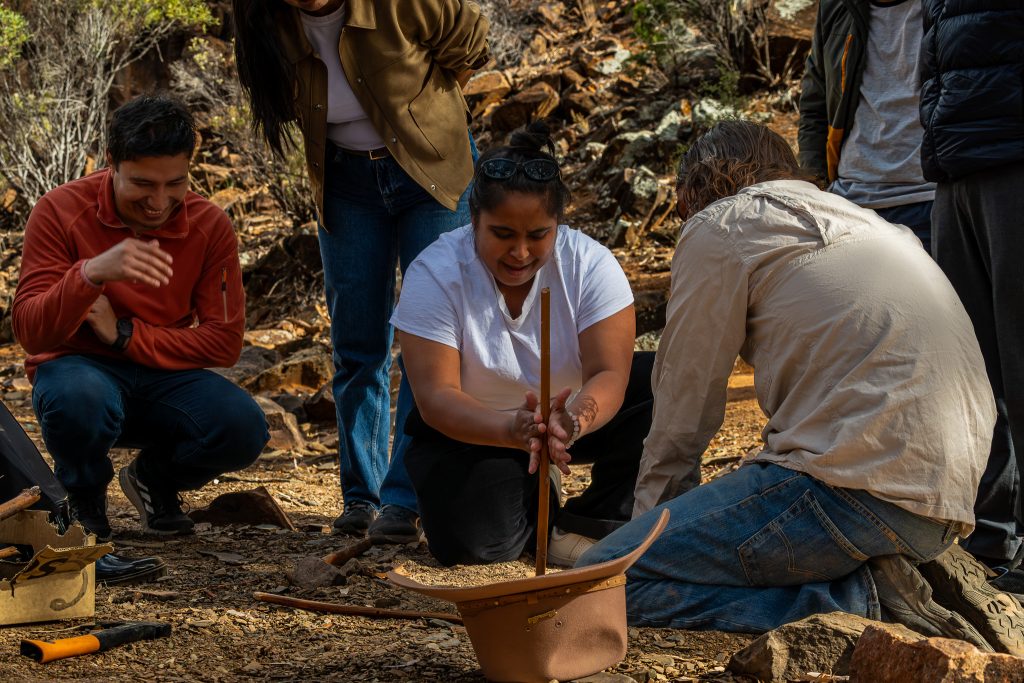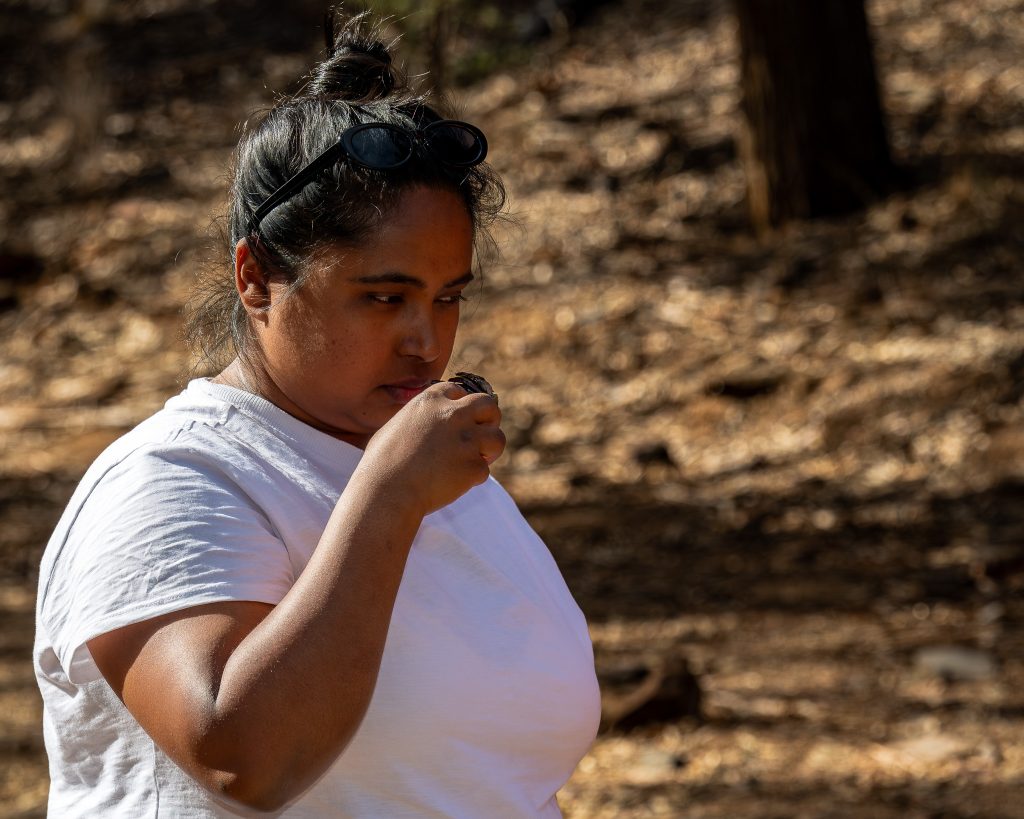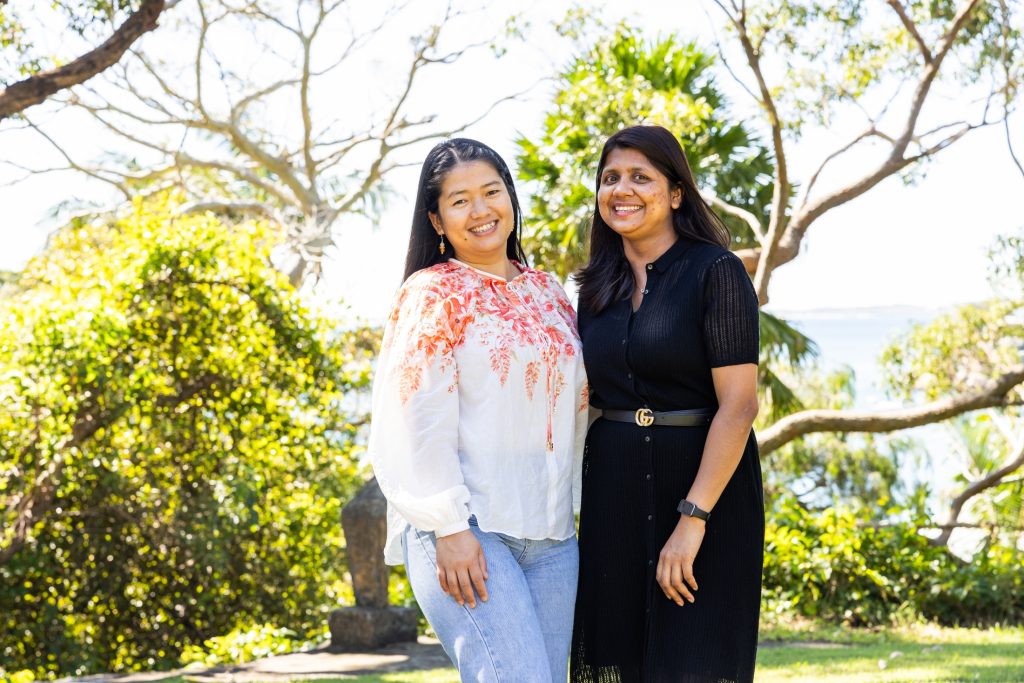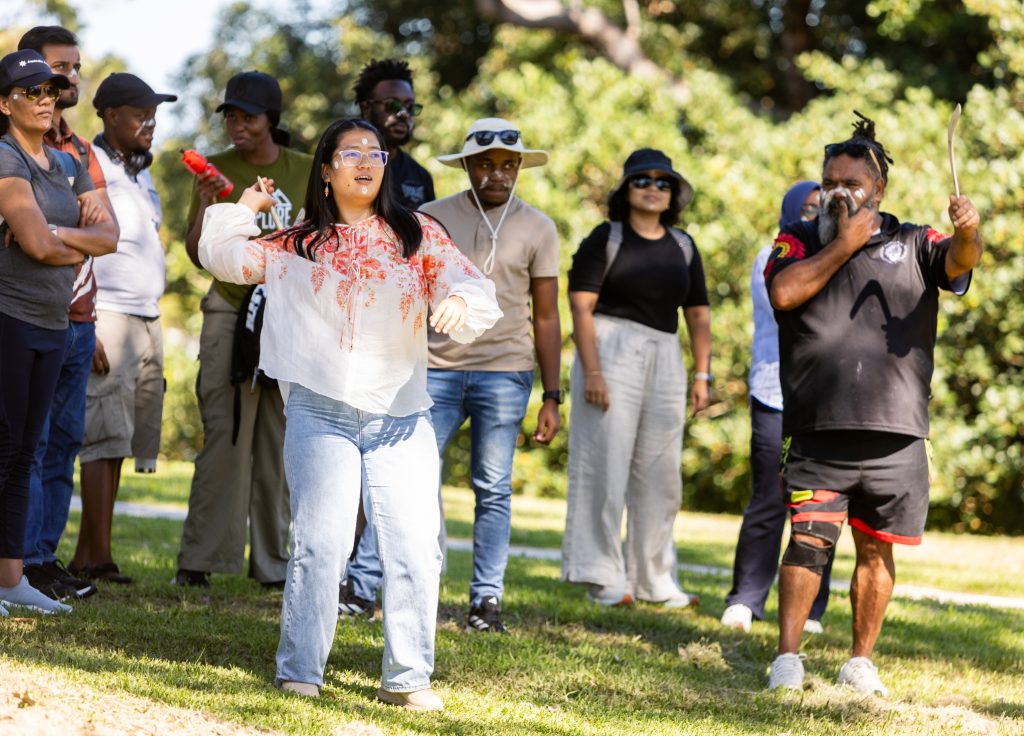Scholars gain new experiences and knowledge through First Nations engagement activities
Posted: 3 July 2025
In the lead-up to NAIDOC Week 2025, Australia Awards scholars from Nepal participated in a series of Indigenous engagement activities held across Australia and online. Scholars from Bangladesh, Bhutan, Maldives, Mongolia, Pakistan and Sri Lanka also took part, with the experiences offering participants enriching opportunities to deepen their understanding and appreciation of Indigenous Australians’ culture, traditions, history and achievements.
Building on the success of last year’s First Nations experience, Australia Awards – South Asia & Mongolia delivered a flagship initiative: a four-day, three-night immersive First Nations study tour in the Ikara-Flinders Ranges National Park, South Australia. Ten selected scholars from South Asia and Mongolia, including several who identify as indigenous or come from traditionally marginalised groups, travelled from across Australia to participate in this experience. Scholars undertook activities to learn about the relationship that the Adnyamathanha people, the Traditional Owners of the greater Ikara and Flinders Ranges area, have with the environment. Scholars also learnt about Indigenous history, knowledge and perspectives through a trivia and storytelling event at Ikara, leading to a discussion of this year’s NAIDOC theme: ‘The Next Generation: Strength, Vision & Legacy’.

Scholars from Nepal Kabin Maharjan (left) and Ranjana Bishwakarma (right) try traditional fire making with Adnyamathanha guide Izzy in the Ikara-Flinders Ranges National Park.
Nepali scholar Ranjana Bishwakarma said, “The study tour was truly unforgettable. I gained valuable insights into Indigenous culture, explored breathtaking landscapes and learnt about the region’s rich history.” She added, “One of the highlights was the trivia—it was fun, and helped me bond with fellow scholars, even though I didn’t know all the answers! The entire tour was thoughtfully organised and left me with lasting memories, plenty of laughter and fresh perspectives that I’ll carry with me.”

Ranjana smells a seed pod traditionally used by the Adnyamathanha people during the study tour to the Ikara-Flinders Ranges National Park.
In Melbourne, scholars took part in the Aboriginal Heritage Walk at the Royal Botanic Gardens Victoria, a site of great cultural significance to the Kulin Nation. The experience began with a traditional Welcome to Country delivered by local guides, who then led the group through the gardens. Along the way, they shared stories of the land and its people, pointing out native plants used for food, medicine and tools—each with its own cultural meaning. Through the activity, scholars gained insight into the rich history and thriving culture of the local Indigenous community.
Reflecting on the event, Nepali scholar Unique Lohani said, “It was a wonderful experience to learn about Indigenous heritage and their deep, enduring connection with nature—an integral part of their way of life. Discovering how traditions from the Dreamtime have persisted through generations, and seeing them reflected in various cultural artefacts, was truly intimate and moving. I’m incredibly grateful for the opportunity to be part of this meaningful journey.”

Unique (front row, second from left) pictured with other scholars from South Asia and Mongolia during the Melbourne Aboriginal Heritage Walk.
In Sydney, scholars travelled to Bundeena Royal National Park, located on the traditional lands of the Dharawal people. Richard Campbell, a member of the Yuin Nation, began the tour with a smoking ceremony, Welcome to Country and face-painting using ochre. Richard shared cultural stories through traditional artefacts, such as fire sticks, boomerangs, digging tools, shields and animal furs. Scholars also had the opportunity for hands-on engagement by learning traditional boomerang throwing and fire-making techniques.

Nepali scholars Prakriti Budha Magar (left) and Shristi Oliya (right) at the Bundeena Royal National Park.
In an online Aboriginal weaving workshop, scholars connected with Ronnie Jordan, a Pitta Pitta Wangkamahdla woman, and Coen, a Pitta Pitta Wangkamahdla Muruwari Ngemba man. Ronnie opened the session with storytelling, explaining how woven objects serve as tangible links between the weaver, their ancestors and the land, while also acting as tools for mindfulness and reflection. Scholars, who had received weaving materials in advance, followed step-by-step instructions to learn coil weaving and rope making. The shared activity fostered a sense of community among participants across Australia, while celebrating the resilience, creativity and living traditions of Indigenous cultures.
Prakriti Budha Magar, a scholar from one of Nepal’s indigenous communities, said, “I was fascinated to learn that Aboriginal art and weaving are both powerful storytelling forms. The choice of threads varies by Country and is naturally dyed … in the past, echidna spikes were even used in place of needles.” She added, “Witnessing Ronnie’s beautiful, artistic creations and seeing how Indigenous knowledge continues to thrive was deeply moving. Receiving my own weaving pack made the experience feel even more personal and meaningful.”

Prakriti tries her hand at thorwing a boomerang under the guidance of Richard Campbell, a member of the Yuin Nation, during the Bundeena Indigenous Bush Walk.
These immersive experiences continue to foster deep cross-cultural understanding and appreciation among the scholars, reinforcing the importance of Indigenous knowledge and heritage in contemporary Australia.
Cover image: Nepali scholars Prativa Khanal (right) and Unique Lohani (left) while participating in the Melbourne Aboriginal Heritage Walk at the Royal Botanic Gardens Victoria.